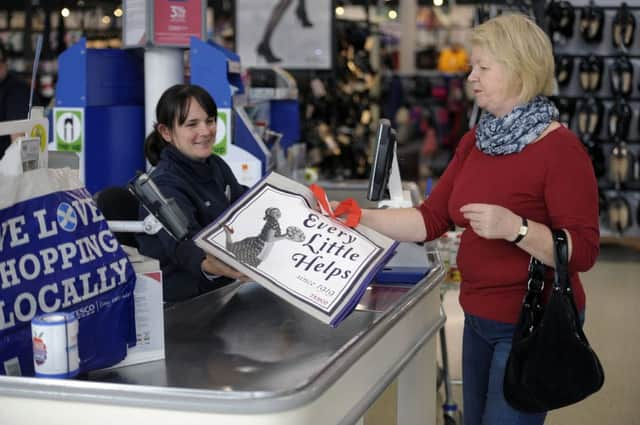Tesco post worst annual results in 97-year history


The figure is one of the deepest losses in UK corporate history, coming at the end of a turbulent 12 months for Tesco, which suffered an accounting scandal as well as the departure of chief executive Philip Clarke.
New chief executive Dave Lewis urged shareholders to “draw a line under the past”, but warned that the “highly competitive” British grocery market, where the Big Four mainstream supermarkets are embroiled in a price war with discounters such as Aldi and Lidl, had pushed UK profit down by almost 79 per cent. The company’s profit margin in the UK was 1 per cent.
Advertisement
Hide AdAdvertisement
Hide AdThe headline profit figure took into account £7bn of “exceptional items”, which included losses from land which the retailer no longer plans to develop amid the changing retail market.
Tesco, along with some of its rivals, has focused on a departure from giant superstores favoured by shoppers in the past decade. Consumers are increasingly moving away from a weekly shop at out of town supermarkets in favour of more online shopping, topped up by regular trips to local stores.
Former Unilever executive Mr Lewis, who took over the position at the head of Britain’s biggest retailer six months ago, said he wanted to focus on cutting prices and putting consumers “at the heart” of the business.
Since he arrived at the helm of the company run by businessman Terry Leahy for 14 years, the firm has announced the closure of 43 loss-making stores as well as shelving plans for a further 49.
“The one thing I would ask colleagues to do is to separate out these one-off adjustments which recognise our poor performance of the past and focus on the improvements we’re seeing in our business performance in the fourth quarter,” he said in a video presentation to staff, pointing to an improving like-for-like sales performance in the UK in the second half of the year.
Leigh Sparks, professor of retail studies at Stirling University, said that competition from new entrants to the market, such as Aldi and Lidl, combined with changing consumer habits, had left Tesco with stagnant market share since 2006.
“They have had too much of the wrong sort of space and the competition and the customers have moved on,” he said.
“Market share has gone nowhere, but they have added a lot of space in that time, which tells you they’ve overexpanded.”